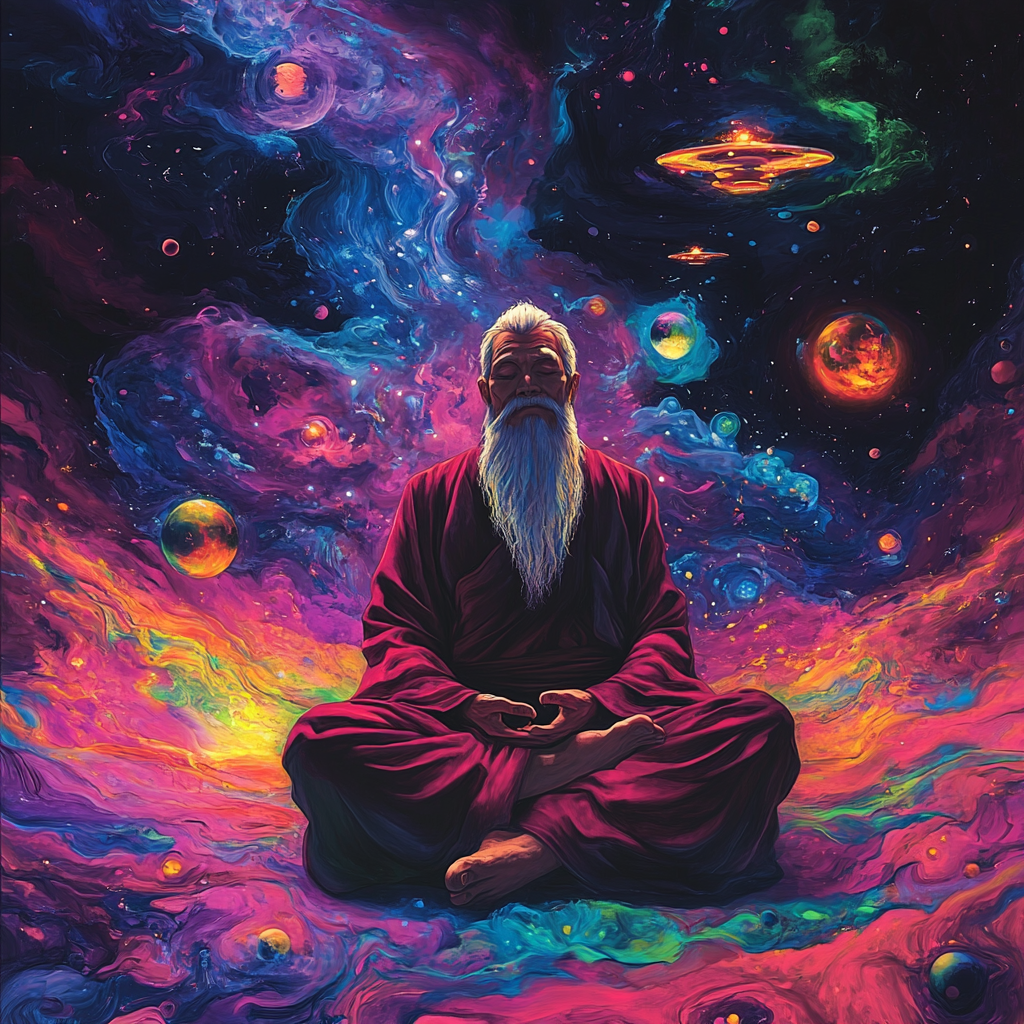
Cast Off Shackles, Remove Masks, Embrace Nature and the Tao
Share
Cast Off Shackles, Remove Masks, Embrace Nature and the Tao
In Zhuangzi’s “Knowledge Wanders North” (Zhi Bei You), the essence of Taoist thought shines through—a call to shed societal constraints, return to nature, and awaken to the Tao. Far from being an abstract philosophy, Zhuangzi’s wisdom offers practical guidance for how we might free ourselves from the illusions that bind us, live authentically, and harmonize with the universe.
Breaking Free from External Shackles: Returning to Authenticity
In Zhi Bei You, Zhuangzi writes, “All things arise from the mechanism of change and return to it. Thus, life and death are transformations, the ebb and flow of nature’s workings.”
Zhuangzi presents life’s external rules and constructs as mere illusions—mechanisms that distract us from the true rhythm of existence. Clinging to these constraints is akin to being chained, preventing us from experiencing life’s genuine freedom.
In modern life, we are often ensnared by society’s expectations—chasing success, wealth, and recognition. Even our personal interests and dreams are frequently labeled and boxed. Yet Zhuangzi’s insights remind us that true liberation comes not from submission to these external structures, but from resonating with the Tao, which transcends all conventions.
As he observes, “When one lives in harmony with time and adapts to circumstance, grief and joy have no hold; when one responds to all things without resistance, the heart flows naturally.”
Only by aligning with the natural flow of life can we escape the shackles that limit us.
Removing Masks: Discovering the True Self
In Zhi Bei You, Zhuangzi introduces the concept of sitting and forgetting (zuo wang): “To slough off the body, discard intellect, detach from form, and leave behind knowledge—this is called sitting and forgetting.”
Here, Zhuangzi challenges us to relinquish the false identities and biases we cling to. By shedding these masks, we can uncover the authentic self and draw closer to the Tao.
In our contemporary world, we often wear masks to meet others’ expectations, hiding our true thoughts and emotions in the name of social acceptance. Yet Zhuangzi’s sitting and forgetting is not an act of escapism, but an invitation to cultivate inner peace. Taking off the mask is not a retreat from responsibility—it is a return to genuineness, where self-awareness and authenticity become our guiding principles.
Zhuangzi captures this duality when he writes: “Some see life as death and death as life; some see the possible as impossible and the impossible as possible.”
By understanding that opposites are part of the same continuum, we free ourselves from the conflict between appearance and reality, discovering instead the harmony of being true to ourselves.
Embracing Nature: Wandering with the Tao
In one of Zhi Bei You’s most poetic lines, Zhuangzi proclaims, “The one who flows with the breath of heaven and earth leaves nothing undone.”
Here, he highlights humanity’s intimate relationship with nature: humans are not separate from it, nor its masters. Instead, we are woven into the same breath that animates all things. To embrace this truth is to align ourselves with the Tao and experience the profound unity of existence.
Zhuangzi refers to this state as the harmony of heaven and humanity (tian ren he yi). Through metaphors like the transformation of the giant fish Kun into the mythical bird Peng, he portrays the vastness of life’s potential, reminding us that freedom lies in transcending limitations.
In our pursuit of productivity and results, we often lose touch with nature’s rhythms—the rustling of trees, the stillness of dawn, the vastness of the stars. Yet Zhuangzi urges us to reconnect with these elements, for they whisper the truth of the Tao: “Heaven and I were born together; all things and I are one.”
Awakening to the Tao: Beyond Joy and Sorrow
Zhuangzi describes a transcendent state in Zhi Bei You: “Great understanding appears at ease; small understanding is restless. Great words burn like fire; small words chatter like streams.”
This contrast between great understanding and small understanding illustrates the difference between perceiving life through the lens of the Tao versus through the narrow confines of worldly concerns. The Tao embraces all changes without resistance, while human preoccupations trap us in cycles of fleeting joys and sorrows.
Zhuangzi teaches us that life’s setbacks and challenges are opportunities to expand our perspective. “Heaven is vast and silent; the seasons turn without deliberation,” he writes. The beauty of life lies not in contrived effort but in the effortless flow of the natural world.
Conclusion: The Tao Is Invisible, Yet Always Present
Amid the clamor of modern life, we often find ourselves enslaved by desire and weighed down by judgment, distancing ourselves from the serenity of nature and the simplicity of the Tao. Yet Zhuangzi reminds us in Zhi Bei You: “To align heaven with heaven, forget heaven, and thus become heaven itself.”
To cast off shackles and masks is not to escape life, but to awaken to its essence. It is not a rejection of responsibility, but a deeper acceptance of what it means to live authentically. When we let go of illusions and rediscover the Tao within, we find a wellspring of wisdom and peace.
Take a moment now to pause, set aside your burdens, and embrace the quietude of nature. The Tao awaits—vast, timeless, and always within reach.

